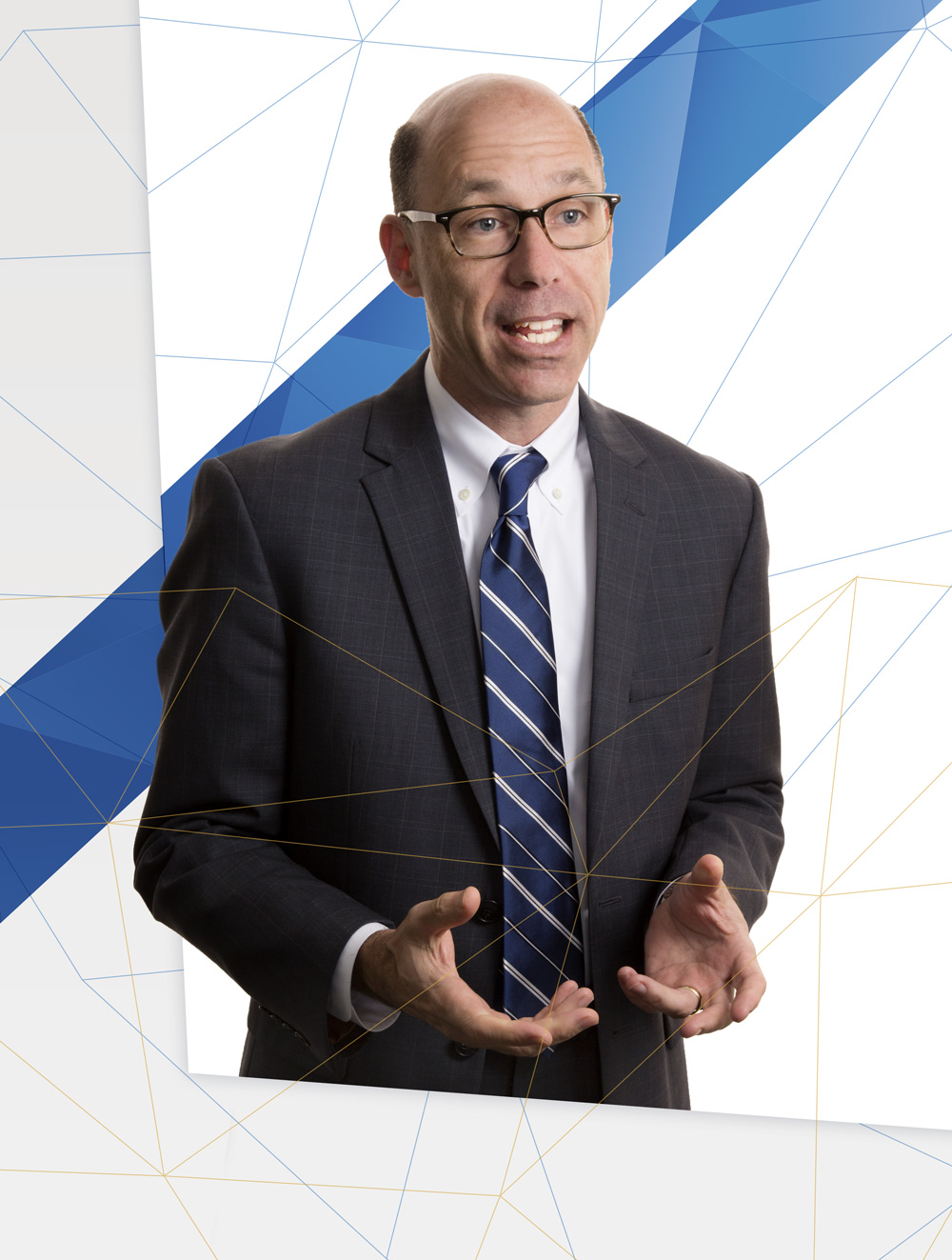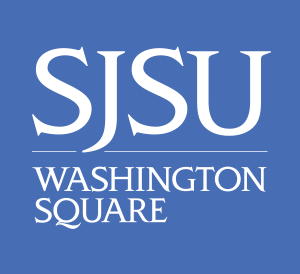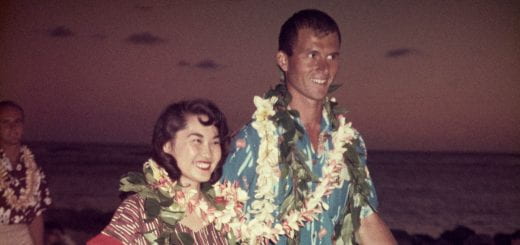Alumni Healthcare Leaders: Bill Graham

“Take advantage of the robust healthcare education programs at SJSU while you have the chance.”
The nation’s complex and hotly debated healthcare system affects us all. Washington Square wanted to hear from alumni insiders who are shaping the industry—from hospitals and biotech companies to medical devices and research and development.
Here is our full conversation with Bill Graham, ’92 MPH, president of Dignity Health Sequoia Hospital. Read Q&As with all 10 alumni healthcare leaders.
Why did you pursue a master’s in public health?
I studied marketing for undergrad and did an internship in hospital administration. I really enjoyed that experience, so I made the decision to direct my career toward health administration.
The program at SJSU allowed me to do work I enjoyed and grow professionally while going to school. My mentor was familiar with the SJSU program and its leadership. He said they were phenomenal and that there was personalized attention to help me grow.
What is your best memory of your time at San Jose State?
It was the early 90s at the height of the AIDS epidemic, and it was the reason many of my fellow students got involved in health care. They were very focused on education and deploying resources to affect change—the fundamentals of public health. It was amazing to see the commitment and passion these peers devoted to identifying needs and then proactively educating themselves in order to address a serious health crisis. I often think of the people who were with me at SJSU as an example of how communities can come together to effect change.
What would you want people to know about San Jose State?
I appreciate the many ways in which the university is influencing the delivery of healthcare through the breadth of its courses—from nursing to administration to insurance to technicians. Through the variety of disciplines it offers, SJSU is able to make a real difference in the healthcare space locally and beyond.
Additionally, SJSU truly is a melting pot. As a student, I enjoyed the opportunity to work with students from different backgrounds and the ability to learn from their varying perspectives.
What inspired you to work in healthcare?
As I mentioned, I had an internship in hospital administration and was inspired by all I learned. I wanted a career that enabled me to make a positive impact in my community, and healthcare seemed like a direct path to realizing that goal. There are no perfect or simple answers in healthcare, and I appreciate the opportunities for intellectual challenge and collaboration that presents.
What is your role at Sequoia Hospital?
I’m currently the president of Dignity Health Sequoia Hospital in Redwood City, an accredited, not-for-profit community hospital, which has provided innovative and exceptional health care for generations of Bay Area residents. I help optimize programs that include our award-winning Heart and Vascular Institute, which is affiliated with the world-renowned Cleveland Clinic Heart and Vascular Institute; our Birth Center, which is consistently ranked as a favorite among Peninsula families; our Total Joint Replacement program, which is a designated Blue Distinction Center for Knee and Hip Replacement; and our comprehensive emergency care department, which employs a telehealth robot to diagnose and treat stroke as quickly and effectively as possible.
Sequoia Hospital is a part of Dignity Health, a 21-state network of 9,000 physicians, 60,000 caregivers and staff, and more than 400 care centers—including 40 hospitals, urgent and occupational care facilities, imaging centers, home health centers, and primary care clinics. We are a very mission-based organization, founded on the belief that all people deserve medical care regardless of their background, ethnicity or circumstances. Every day, that vision directs all that we do. A good example of this is the position we’ve taken on healthcare reform; our first priority is ensuring that everyone in our society has access to care, no matter what. For this and many other reasons, I’m proud to say I’ve been a part of Dignity Health for 25 years.
How does Sequoia Hospital address a major patient need?
Dignity Health is the largest provider of Medicaid services in California, outside of county-based health systems. At Sequoia, we provide a unique experience, combining the intimacy of a community hospital with the superior care of an advanced medical facility. This means our patients don’t have to travel for state-of-the-art healthcare. It’s available right in their own backyard. We are thrilled to offer that convenience.
What is the biggest challenge with U.S. healthcare today?
There are two primary challenges in U.S. health care today: policy and delivery.
First, there is great uncertainty around healthcare policy. We’ve had the passage and implementation of the Affordable Care Act, then countless efforts to change or dismantle it, and then several new healthcare policy proposals that have been unsuccessful. All of this has created even more anxiety and mistrust about an already complicated system.
Second, the current healthcare delivery systems are highly fragmented. There is a failure to look at the health of individuals comprehensively and within the broader context. Right now, healthcare is largely built on how to fix what is already broken. What we instead must do is take into account individual diet, lifestyle and fitness choices—in addition to disease and sickness. We need to ask ourselves what programs and education can we provide to empower individuals to make healthy choices and equip them with the tools to advocate for their own health, so they don’t get sick in the first place. It’s about a shift to preventive care.
That’s why I appreciate the healthcare programs at SJSU. They help students determine how they can impact broader behaviors to achieve sustainable change.
What is currently working well?
I think what works really well is that so many of the people involved in healthcare find it meaningful. They care about people and want to improve quality of life for their communities; it’s why they got into healthcare to begin with. I see them as a huge untapped resource.
What does the healthcare industry need most from academic partners who are training the next generation of innovators?
Tap into the passion for the work people want to do. Expose them to a variety of different ways of thinking and opinions on how to deliver care. Encourage them to work across the boundaries of various healthcare disciplines.
What do you look for when hiring new talent?
We look for competency, of course, but most important is a cultural fit. For Sequoia specifically, we are focused first and foremost on community. Sequoia patients are our friends, family and neighbors. When somebody walks through our doors, she or he should be treated like a loved one. For potential hires, we need to make sure they truly understand that core value.
What should everyone know about healthcare?
At a basic level, the average person needs to understand more about how the healthcare system works. Many of us in California are fortunate to have some form of insurance. However, most people don’t really understand how insurance works. Everyone should know how to access the healthcare system and about their rights as patients. A good place to start is hhs.gov/programs/index.html.
What advice would you give patients and caregivers navigating the complexities of U.S. healthcare?
Do your research and understand the system you’re navigating. Be your own advocate, with the help of family or advisors, if necessary. You have the responsibility and opportunity to be your own best healthcare resource. Educate yourself and ask questions of your healthcare providers. Be sure your needs are addressed in the way you believe is most appropriate for you.
How did SJSU prepare you for your career and your current role?
SJSU prepared me very well, maybe in ways I didn’t fully appreciate or understand at the time. The program focused a lot of attention on how we affect change. How do we identify where we will be most effective, and how do we engage different audiences around the needs we’ve identified to move the organization or community toward a specific objective? The program had a strong focus on the power of education in the healthcare space. In healthcare, we are always educating to ensure we constantly improve our programs and processes to deliver the best patient experience possible.
What is your one message for your fellow alumni?
Take the time to learn about and understand healthcare. It’s a highly dynamic industry that is changing on a daily basis, and it affects every single person in this country. Take advantage of the robust healthcare education programs at SJSU while you have the chance.



